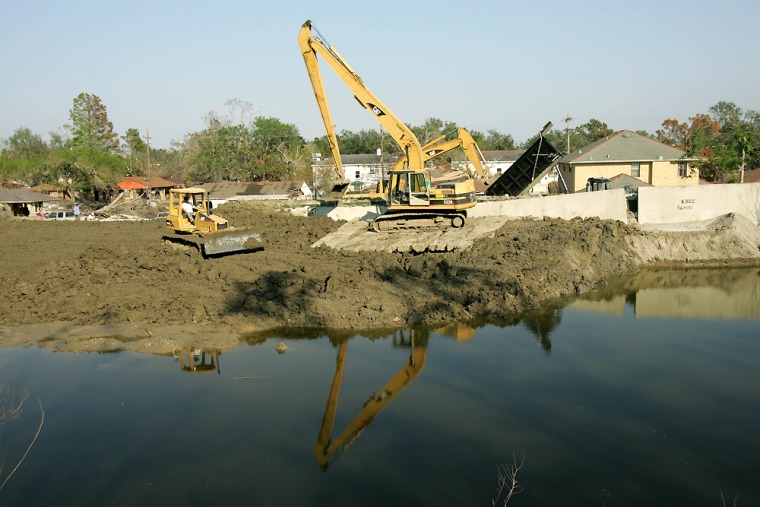Repairs to New Orleans’ levees may be insufficient to protect residents moving back to the devastated city if another hurricane comes before the tropical storm season ends this month, experts and engineers said Wednesday.
Dozens of breaches continue to mar the city’s levee system, including a large seep at the Industrial Canal last week, according to engineering experts who have examined the floodwalls.
Repairs have gotten better in recent days, the experts told a Senate panel investigating floodwall failures after Hurricane Katrina. But the initial rebuilding process was done with little or no engineering guidance and perhaps substandard materials, they said.
“Short term, without a storm, they are probably adequately safe,” said Dr. Peter Nicholson, a University of Hawaii engineering professor, representing the American Society of Civil Engineers. “Certainly with a large storm, as we are not yet out of hurricane season, and certainly for next hurricane season, there is significant risk.”
At the Industrial Canal levee, which abuts New Orleans’ obliterated Ninth Ward, repairs to breaches “were not adequate for a high-water incidence — for instance, another hurricane storm surge with the storm season that isn’t yet behind us, or even a very high tide,” said Raymond Bolton Seed.
Seed, a University of California at Berkeley engineering professor, participated in a National Science Foundation study investigating the levee failures.
Levee failures ‘not entirely unexpected’
The large seep at that levee, which occurred Oct. 24, “was not entirely unexpected,” Seed told the panel.
However, he said, deeper walls “that will be far more stable than they were before” have been dug in at least some areas since the National Science Foundation first examined the levees.
“I don’t think there is a long-term risk to the city of New Orleans,” Seed said.
The findings highlighted what Sen. Susan Collins, R-Maine, who chaired the panel, called troubling concerns about whether the repairs have been insufficient.
“These rebuilt levees may be at risk of failing in another storm, a disturbing finding that raises questions about the safety of the city’s returning residents,” Collins said. She heads the Senate Homeland Security committee, which was holding a hearing on why New Orleans’ floodwalls failed after Katrina hit on Aug. 29.
Sen. Joe Lieberman of Connecticut, top Democrat on the panel, said reconstruction efforts were done, “we all understand, in haste and in very urgent circumstances.” But he echoed Seed’s questions about whether the levees could now “protect the city of New Orleans from high tides, let alone another hurricane.”
The Senate hearing also examined the foundation’s report showing that the levees may not have been designed to protect a major city. Moreover, engineers who designed the levees did not fully consider the porousness of the Louisiana soil or make other calculations that would have pointed to the need for stronger floodwalls, the study shows.
